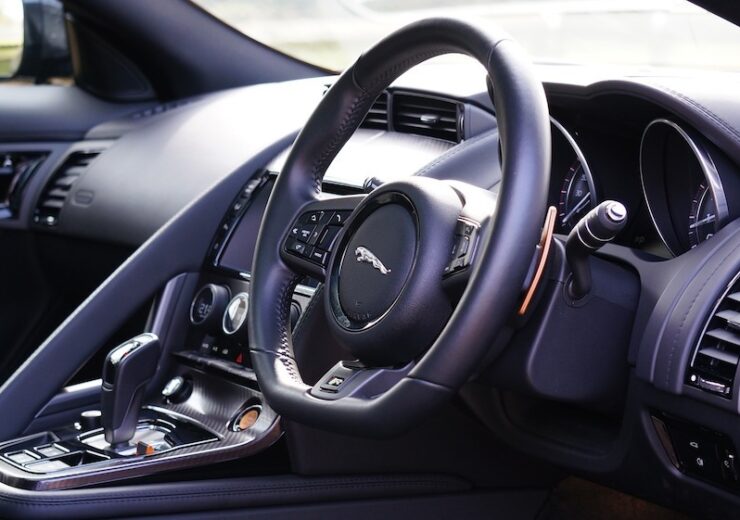To make its interiors, Jaguar Land Rover is going to use Econyl, which collects 40,000 tonnes of waste a year to make its recycled plastic nylon

The move is part of Jaguar Land Rover's Destination Zero project (Credit: Pixabay)
Jaguar Land Rover has announced it’s going to make its car interiors from recycled plastic ocean and landfill waste.
Working with regenerated nylon Econyl – developed by engineering company Aquafil – the next-generation Jaguar and Land Rover models will feature floor mats and trims made from recycled industrial plastic, fabric offcuts from clothing manufacturers, fishing nets from the farming industry and those abandoned in the ocean.
This commitment is part of Jaguar Land Rover’s Destination Zero project – with it aiming to “create a world” with zero emissions, zero accidents and zero congestion.
It believes this innovation will help the company to make environments safer and cleaner while offering customers a premium, sustainable option.
Adrian Iles, senior engineer of interior systems at Jaguar Land Rover, said: “Our designers and engineers are committed to developing the next generation of sustainable materials that will feature on future Jaguar and Land Rover models.
“We place a great deal of focus on the creation of new sustainable materials, using the latest, most innovative techniques and textiles.
“Minimising waste, re-using materials and reducing carbon emissions sits at the heart of our Destination Zero mission.
“This pioneering materials research is one of the key ways we’ll achieve this and is an integral part of our design offering to our customers.”
Move to develop interiors out of recycled plastic waste part of Jaguar Land Rover’s move to a circular economy
The Econyl regenerated nylon has already been used by high-end fashion, sportswear and luxury watch brands to create handbags, backpacks, swimwear and watch straps.
The nylon waste is reclaimed by Aquafil from all over the world, with the company recycling as much as 40,000 tonnes of waste over the course of a year.
Its process reduces the global warming impact of nylon by 90% compared with the material produced from oil.
Inside of its treatment centres the waste is analysed, treated and prepared to feed into a chemical plant, where the nylon waste is broken to its original raw material using a recycling process known as depolymerisation.

This raw nylon material is then turned into the yarn, known as Econyl.
Throughout the process, other by-products such as non-nylon, metallic materials or copper sulphate are removed and sent to alternative industries for recycling.
The resulting regenerated nylon polymer has the same chemical and performance characteristics as raw fossil material, allowing it to be processed into a fibre for carpet flooring and textiles.
This can then be used to manufacture floor mats for future Jaguar and Land Rover models with the goal of using more environmentally conscious and sustainable materials while still providing customers with a premium and hardwearing product.
The process is helping Jaguar Land Rover move towards a circular economy as part of its journey to Destination Zero.
